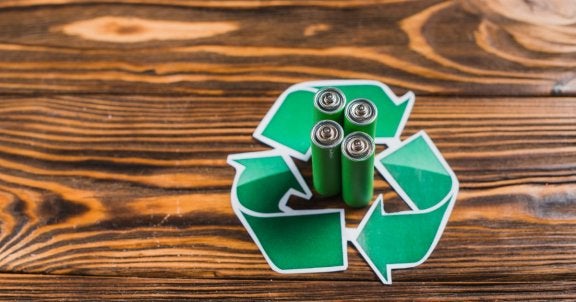Earth Day and E-Waste: The Importance of Electronics Recycling

With rapid technological advancements comes a less talked about consequence—electronic waste, or e-waste. In honor of Earth Day it's crucial to turn our attention to this escalating issue and explore how we can contribute to more sustainable practices. As the fastest-growing form of solid waste stream in the world, knowing what e-waste is, is vital. This blog post delves into what e-waste is, its impact on the environment, and how we can take action by utilizing electronics recycling services near us.
What is E-Waste?
E-waste refers to discarded electrical or electronic devices. The range of electronic products classified as e-waste is broad, including but not limited to, computers, smartphones, television sets, and refrigerators. Unfortunately, as the desire for new technology grows, so does the pile of electronic waste. But why is this a significant problem?
Statista reveals that “more than 50 million metric tons of e-waste is generated globally every year.” Electronic waste harbors various toxic substances (lead, mercury, arsenic), which, when improperly disposed of, can harm the environment and human health. When e-waste is dumped in landfills, these toxins can leach into the soil and waterways, posing severe risks to ecosystems and communities. Hence, proper e-waste management, including recycling and safe disposal, is not just beneficial but necessary.
E-Waste and Global Warming: The Greenhouse Gas Connection
A critical consequence of improper e-waste disposal is its contribution to global warming. Electronic waste processing can release significant amounts of greenhouse gases into the atmosphere. The decomposition of waste in landfills generates methane, another powerful contributor to climate change. Proper recycling and disposal of e-waste can significantly reduce these emissions, highlighting the importance of responsible e-waste management in combatting global warming.
Bridging the Digital Divide with E-Waste
An often overlooked aspect of e-waste is its potential to bridge the digital divide. Many electronic devices that are considered 'waste' could still serve a purpose if refurbished and redistributed. Programs focused on repurposing electronics provide low-income families and non-profit organizations with much-needed technology, thus extending the lifecycle of electronic devices and reducing e-waste. By supporting programs that include refurbishment, we not only contribute to environmental sustainability but also to social equity and digital inclusion.
Electronics Recycling Options Near Toledo, Ohio
For those near Toledo, Ohio, looking to dispose of their electronic waste responsibly, there are several convenient options:
- Recycle I.T. USA Toledo: A comprehensive recycling service that accepts a wide range of electronic devices for safe and responsible recycling.
- Best Buy: Offers recycling drop-off points for a variety of electronics, ensuring they are properly handled and recycled.
- Lucas County Recycle Center: Provides e-waste recycling services among other types of recycling, serving as a local hub for environmentally responsible disposal practices.
Taking Action on Earth Day with Buckeye Broadband
At Buckeye Broadband, we understand the importance of caring for the environment, especially when it comes to managing electronic waste. We encourage our customers and the community to participate in electronics recycling initiatives.
Whether you're looking to dispose of old devices or seeking ways to minimize e-waste, Buckeye Broadband wants to help provide resources for making environmentally responsible choices. Keep up to date with our information on environmentally friendly Internet and more on the Buckeye Blog.
